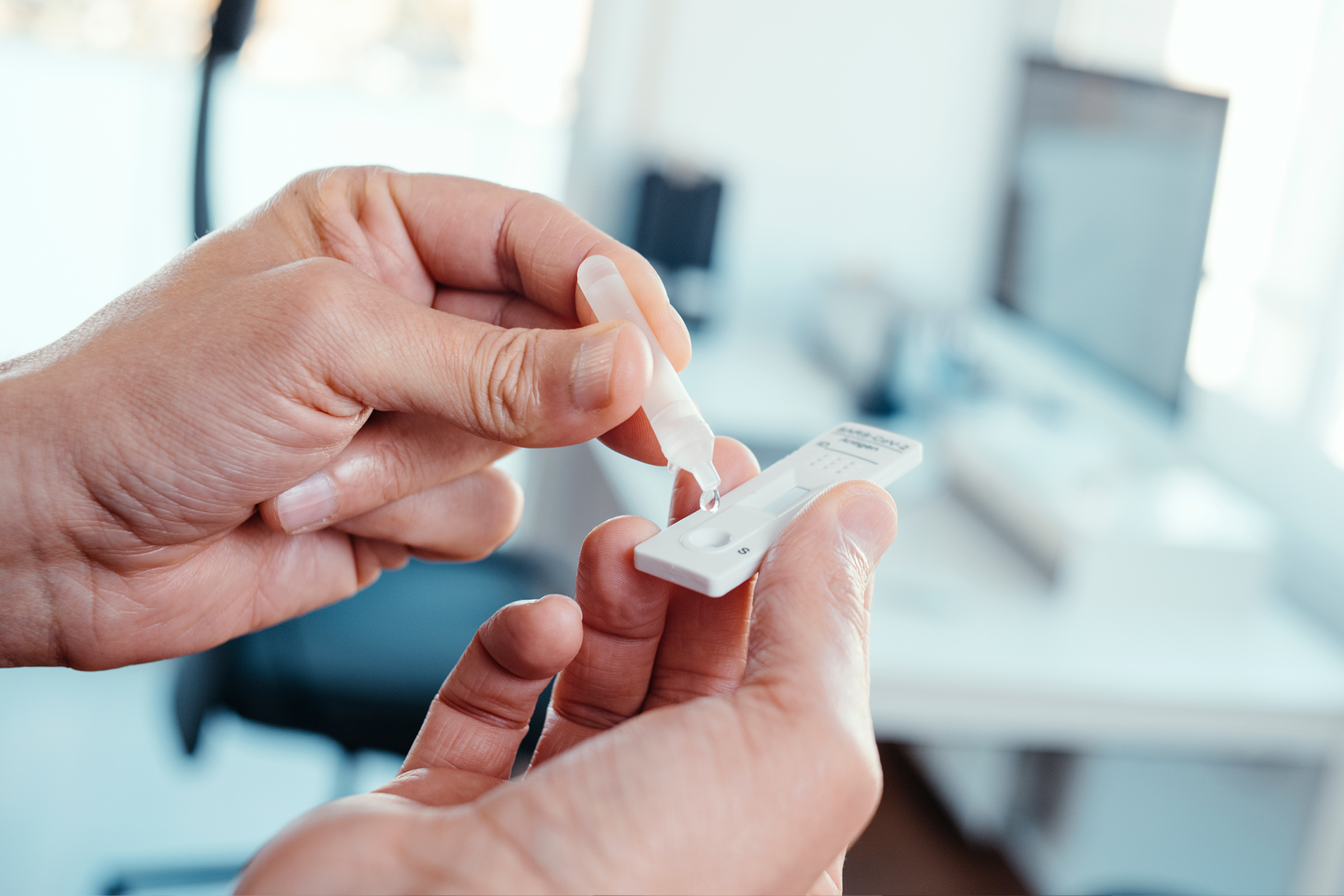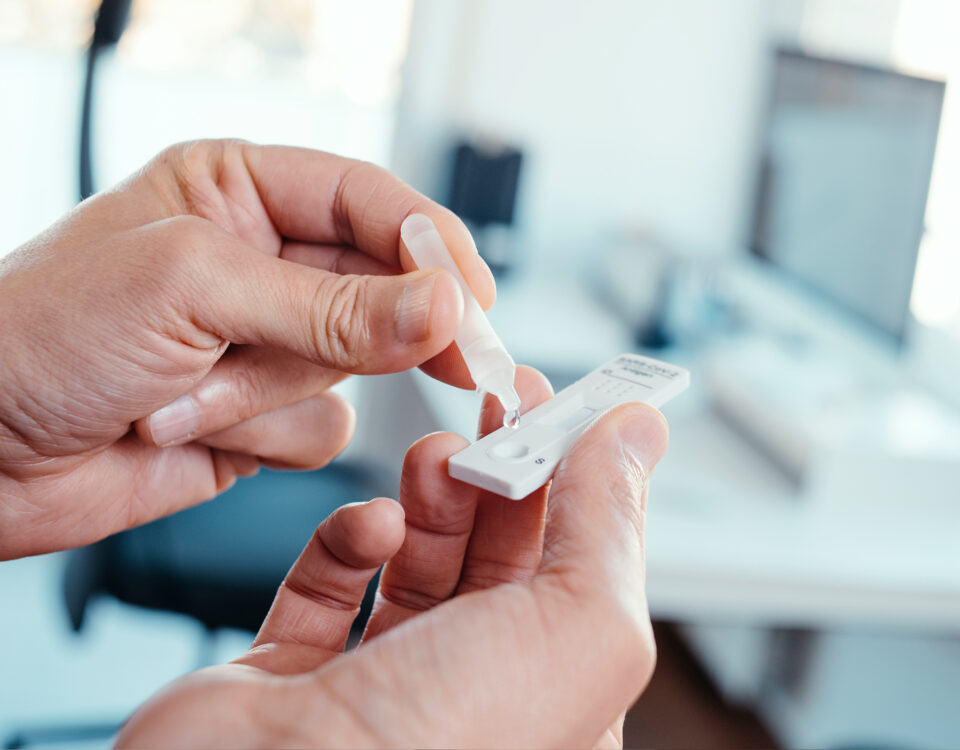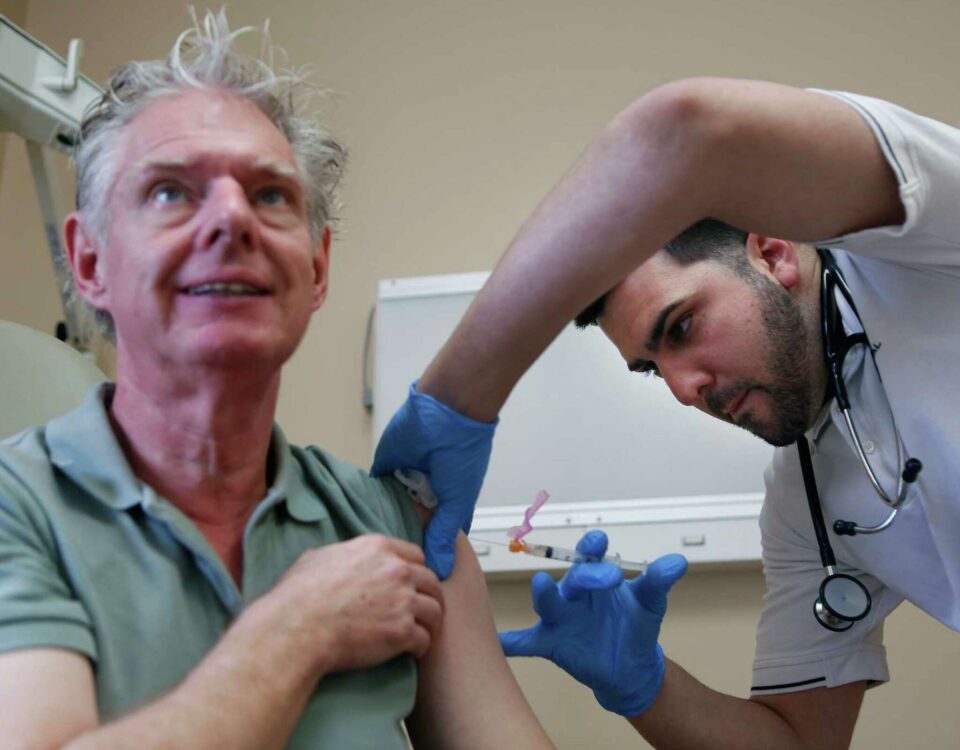
Port Medical Management Introduces Mobile App for Remote COVID Testing
March 15, 2023Team Effort
Ensuring seafarer wellness takes many hands
BY PATRICK ZEITLER
July/August 2023
In the maritime industry, nothing ruins a routine day faster than a medical emergency. Fortunately, we've come a long way from the days when a carpenter's collateral duty was to serve as the ship's surgeon.
Today, it's possible for a medical emergency to be reported from hundreds of miles at sea and get shoreside support within minutes. The logistical infrastructure is such that a determined coordinator can work with the local port and ship agents to arrange transportation via air, land or sea to the medical providers. When all the components function as designed, the mariner stands an overwhelming (but not guaranteed) chance that he or she will receive adequate treatment in time and return to sail another day.
To be successful, seafarer health and wellness require diligence from ship operators, competent crew, oversight from both port and flag states and a strong network of maritime stakeholders, starting with the seafarer himself. It means more than just a doctor patching up a mariner. It also means taking into account the mental and emotional state of the injured person. In short, it's a team effort.
Mariners' Responsibilities
Mariners' responsibilities begin prior to ever going to sea. They must first of all provide medical screeners with true and valid information, updating it whenever a major change in their health occurs. Attempting to go to sea prior to being cleared by a physician after a stroke or heart attack, for example, is an intentional and grievous lapse of mariner responsibility.
Working aboard a vessel in a unique and potentially hazardous environment requires the physical, mental and emotional preparedness of all crewmembers. The daunting realization for many a new crewmember is that working for extended lengths of time at sea creates mental and emotional stresses.
Missing holidays will affect loved ones' special events, and just not being available for friends and family are factors that affect every mariner to one degree or another. At the end of the day, mariners must be cognizant that once becoming a member of a vessel crew they are obligated and legally bound to competently function in the role of their assigned station bill. If they're not part of the solution, they become part of the problem.
In 2022, U.K. ports detained vessels for deficiencies such as non-hygienic food, missing medical certificates and general uncleanliness. In the U.S., 78 vessels were detained for various reasons that included noncompliant safety management systems and maintenance deficiencies with regard to lifesaving appliances. Many port states fully appreciate the importance of their role and issue annual reports reviewing statistics and key observations from the previous year.
Owner/Operators' Responsibilities
In the past two decades, many of the larger shipowners and operators have made cultural shifts that exceed flag state requirements by focusing on industrial safety in addition to medical training. Leading chemical tanker company Odfjell, for example, arguably sets the standard when it comes to medical care and crew wellbeing.
To maintain physical, emotional and intellectual wellness, skilled cooks and designated fitness centers are onboard each vessel. Odfjell encourages crewmembers to be active by providing competitions and working with a subcontractor to provide a platform for gaming activities. In addition, all crew members aboard Odfjell vessels have access to Wi-Fi and the ability to communicate with loved ones.
Other key components include medical monitoring with regular checkups as well as company-sponsored health insurance that includes family coverage. Each crew member has individual quarters regardless of position, and there are officer councils and crew experience surveys to allow a platform for the crew to provide feedback to management.
Not all companies provide this level of wellbeing for their crews. In the ongoing effort to improve medical care and the wellbeing of mariners, Odfjell's modus operandi could well serve as a baseline for others.
Regulators' Responsibilities
Flag states share responsibility by regulating mariners' physical fitness for the assigned duty, ensuring that vessel safety equipment is functional and that all safety management systems are in place, and by working closely with non-state organizations that advocate for foreign and domestically licensed mariners.
This is accomplished via regulated health screenings and enforcing regulations on drug and alcohol use. Flag and Port States must set and enforce health and safety standards and hold non-compliant shipowners accountable. In 2022, U.K. ports detained vessels for deficiencies such as non-hygienic food, missing medical certificates and general uncleanliness.
In the U.S., 78 vessels were detained for various reasons that included non-compliant safety management systems and maintenance deficiencies with regard to lifesaving appliances. Many port states fully appreciate the importance of their role and issue annual reports reviewing statistics and key observations from the previous year.
Health Care Providers
Dean Crassas, founder of Port Medical Management, is fully cognizant of what's at stake when a medical emergency arises at sea. Since its founding in 2005, Port Medical Management has handled over 30,000 medical cases by providing 24/7 service for mariners in U.S. ports.
This Houston-based, crew medical services coordinator has become a go-to resource for shipping agents, shipowners and P&I club representatives in the management of medical cases ranging from headaches to heart attacks, often serving as the sole or primary entity communicating with an injured foreign mariner through the duration of the case.
Port Medical Management understands that medical care requires an all-hands team effort and that their service is an essential part of the process. This no doubt motivates the team to continue expanding its network of medical providers across the U.S. while also utilizing innovative technologies for the care and protection of mariners.
For example, Port Medical Management's performance during the COVID-19 pandemic connected the company to shipowners and agents worldwide, paving the way for the company's expansion to service in all U.S. ports. As the effects of the pandemic began to plateau, Crassas assembled a development team to create a mobile app that would facilitate mobile testing for the virus. Port Medical Management's Seascan app, created specifically for this purpose, debuted earlier this year and is now in regular use, saving time and minimizing costs for shipowners and operators.
As the company continues to lead and innovate crew medical care with an eye on current trends and the future, Crassas has now turned Port Medical Management's attention to the mental health issues that may arise at sea. In the coming weeks, Crassas expects to introduce technology that will confidentially and anonymously monitor many of the factors that contribute to the emotional distress of crew members in hopes of preventing or mitigating these potentially devastating onboard episodes.
As a step beyond the traditional threshold of physical wellness, the app will be used in concert with physicians and counselors to address the mental health of mariners as well.



